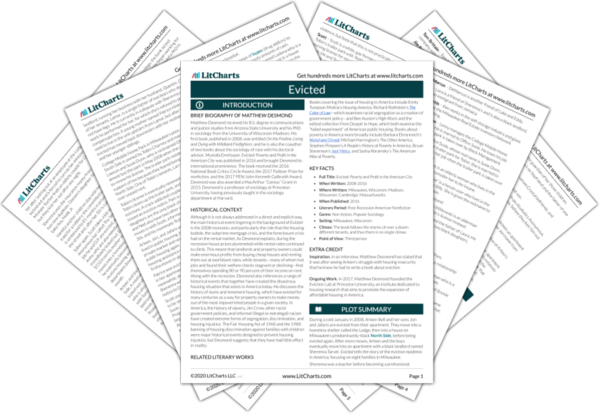Sherenna’s ruthlessness may be necessary for her survival in the property management game, but that does not mean it is morally justifiable. While Sherenna herself obviously needs to earn money to survive, it is indefensible to do so by committing actions such as taking someone’s entire welfare check (which means leaving them to starve). Sherenna’s actions are rendered even more immoral by the fact that she profits significantly from them.
